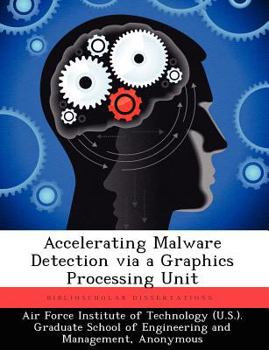Accelerating Malware Detection via a Graphics Processing Unit
Real-time malware analysis requires processing large amounts of data storage to look for suspicious files. This is a time consuming process that (requires a large amount of processing power) often affecting other applications running on a personal computer. This research investigates the viability of using Graphic Processing Units (GPUs), present in many personal computers, to distribute the workload normally precessed by the standard Central Processing Unit (CPU). Three experiments are conducted using an industry standard GPU, the NVIDIA GeForce 9500 GT card. Experimental results show that a GPU can calculate a MD5 signature hash and scan a database of malicious signatures 82% faster then a CPU for files between 0 - 96 kB. If the file size is increased to 97 - 192 kB the GPU is 85% faster than the CPU. This demonstrates that the GPU can provide a greater performance increase over a CPU.These results could help achieve faster anti-malware products, faster network intrusion detection system response times, and faster firewall applications.
Format:Paperback
Language:English
ISBN:1249449812
ISBN13:9781249449812
Release Date:September 2012
Publisher:Biblioscholar
Length:100 Pages
Weight:0.43 lbs.
Dimensions:0.2" x 7.4" x 9.7"
Customer Reviews
0 rating





